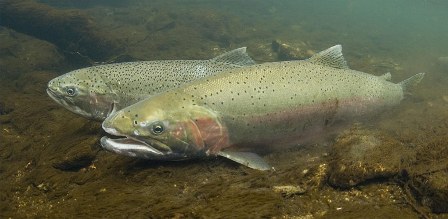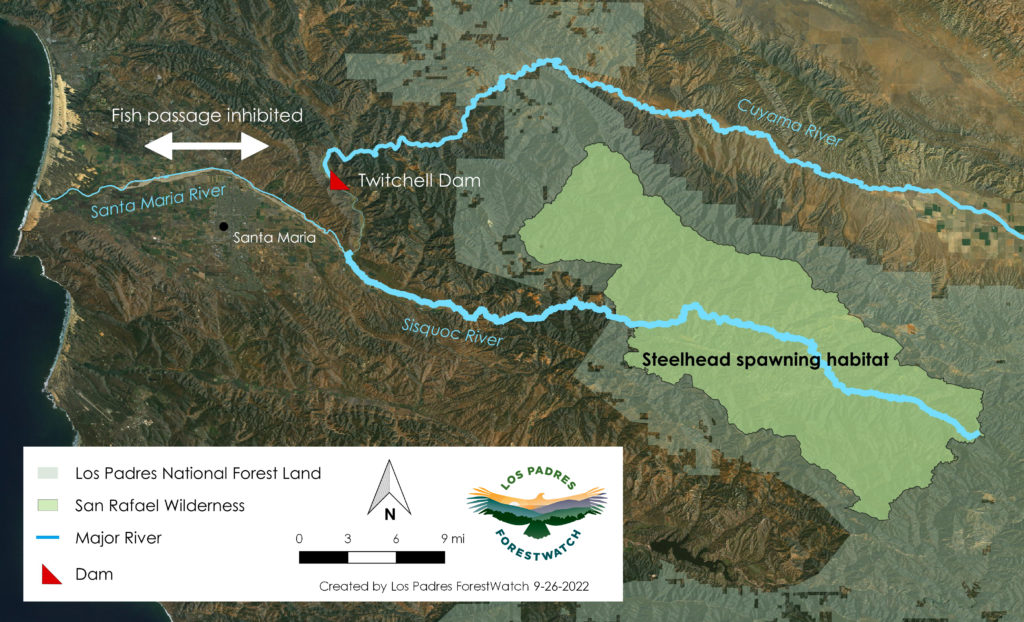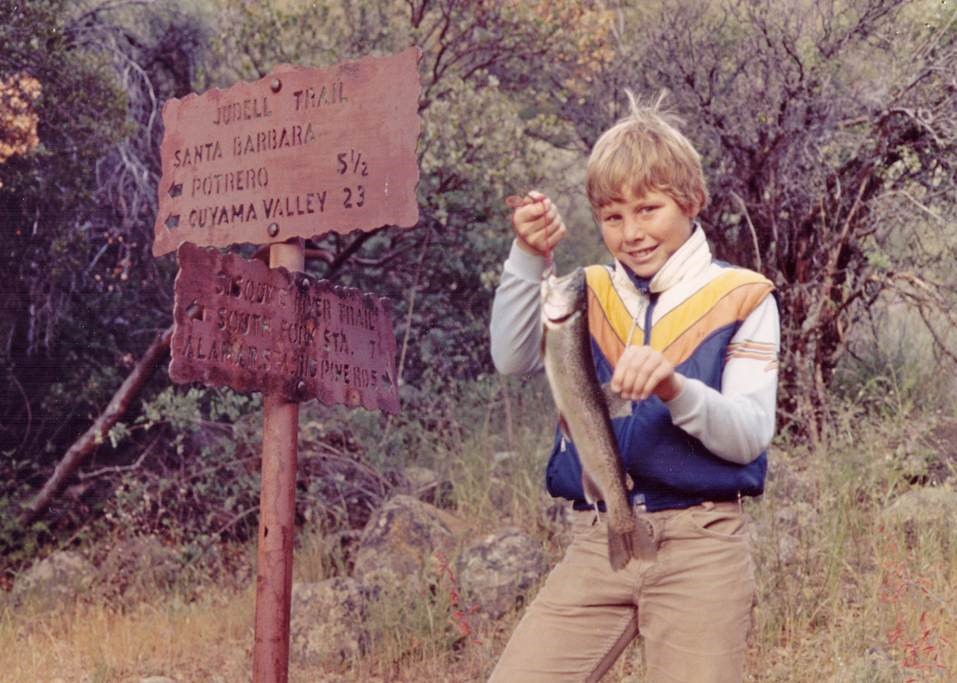SANTA MARIA, CA – The Ninth Circuit Court of Appeals issued an opinion Friday ruling that the operators of Twitchell Dam – the Bureau of Reclamation (“Reclamation”) and the Santa Maria Valley Water Conservation District (“the District”) – can release water from the Dam to comply with the Endangered Species Act (“ESA”). This ruling marks an important step toward protecting the endangered Southern California Steelhead in the Santa Maria River system.

In 2019, plaintiffs San Luis Obispo Coastkeeper and Los Padres ForestWatch filed a lawsuit in federal district court, represented by the Environmental Defense Center, Sycamore Law, Inc., and Aqua Terra Aeris Law Group. The case alleges that the Dam’s operators are violating the ESA by limiting the quantity and timing of flows in the Santa Maria River to levels that harm the critically-imperiled Steelhead population. The case seeks to enhance an important stretch of the Santa Maria River to benefit the watershed, wildlife, and local communities. With adequate flows at the right times, Steelhead will be able to once again reach historic spawning grounds in the Sisquoc River, deep in the San Rafael Wilderness of Los Padres National Forest.
The Bureau and District claimed that they were prohibited from releasing water for fish based on the 1954 legislation that authorized construction of the Dam. Although the district court ruled for the Dam operators, plaintiffs appealed that ruling, and Friday’s ruling officially reversed the district court. The Ninth Circuit noted that the “current operation of Twitchell Dam harms Southern California Steelhead by impairing their ability to migrate and reproduce.” The Court went on to hold that operation of the Dam must comply with both the law authorizing the Dam and the ESA. As the Court ruled, “the Agencies have discretion to operate Twitchell Dam for other purposes besides irrigation, conservation, and flood control—including, potentially, adjusting water discharges to support the migration and reproduction of Southern California Steelhead.”
Twitchell Dam was constructed in the 1950s, and is located on the Cuyama River, the northern tributary to the Santa Maria River. The operation of Twitchell Dam limits the timing and quantity of flows in the mainstem of the Santa Maria River, preventing Steelhead from migrating to and from the ocean and upstream spawning habitat, as the following map depicts. Without adequate flows, fish are unable to complete this process and become stranded in the dry River system.

“Our lawsuit seeks to bring the Santa Maria Valley Water District out of the 1950s and into the 21st Century. Releasing water for fish migration will have virtually no impact on agricultural or domestic supply—our experts estimate 4% of reservoir water would be affected. Santa Maria can have both steelhead and its water supply with straightforward changes to water management,” said SLO Coastkeeper Executive Director Gordon Hensley.
“Endangered Steelhead have nearly disappeared from river systems throughout California’s central coast,” said Los Padres ForestWatch Executive Director Jeff Kuyper. “This landmark ruling finally gives us an opportunity to restore one of our region’s most prolific fisheries while maintaining reliable water supplies for our farms and communities.”
“This decision from the Ninth Circuit Court of Appeals is a critical first step toward recovering Steelhead—one of the most endangered fish species in the United States. The ruling puts an end to the Twitchell Dam operators’ arguments that their hands are tied and that they can avoid compliance with the Endangered Species Act,” said Linda Krop, Chief Counsel for the Environmental Defense Center, which represents Los Padres ForestWatch.

Seventy years ago, the Santa Maria River had the second largest Steelhead run in Santa Barbara County. By some estimates as many as 10,000 fish traveled up the watershed in wet years, with the Sisquoc River in the Los Padres National Forest being the most important spawning tributary within the stream network. However, several large dams have since blocked historic Steelhead runs. Now, Southern California Steelhead are one of the most endangered fish species in the United States. Steelhead are a keystone species for our region and an indicator of the health of our local waterways.
In 2007, the California Coastkeeper Alliance sued to compel the (then) California Department of Fish and Game to initiate stream flow studies as required by law. The resulting study by Stillwater Sciences recommended an improved flow regime at Twitchell Dam, yet the Water District and Reclamation refused to implement the recommendations. This lawsuit aims to implement the Stillwater Study’s recommendations to improve the flow regimes at Twitchell Dam and prevent continued harm to endangered Steelhead. The amount of water necessary to provide flows of appropriate timing and magnitude for Steelhead would constitute only roughly 4% of the reservoir’s average annual amount of stored water. No water would be released in extremely dry years.
This lawsuit complements a separate legal action filed by the two organizations in 2017. That suit, which is pending in state court, is based on longstanding California law that requires dam operators to provide adequate streamflow to sustain healthy fish populations.








Comments are closed.